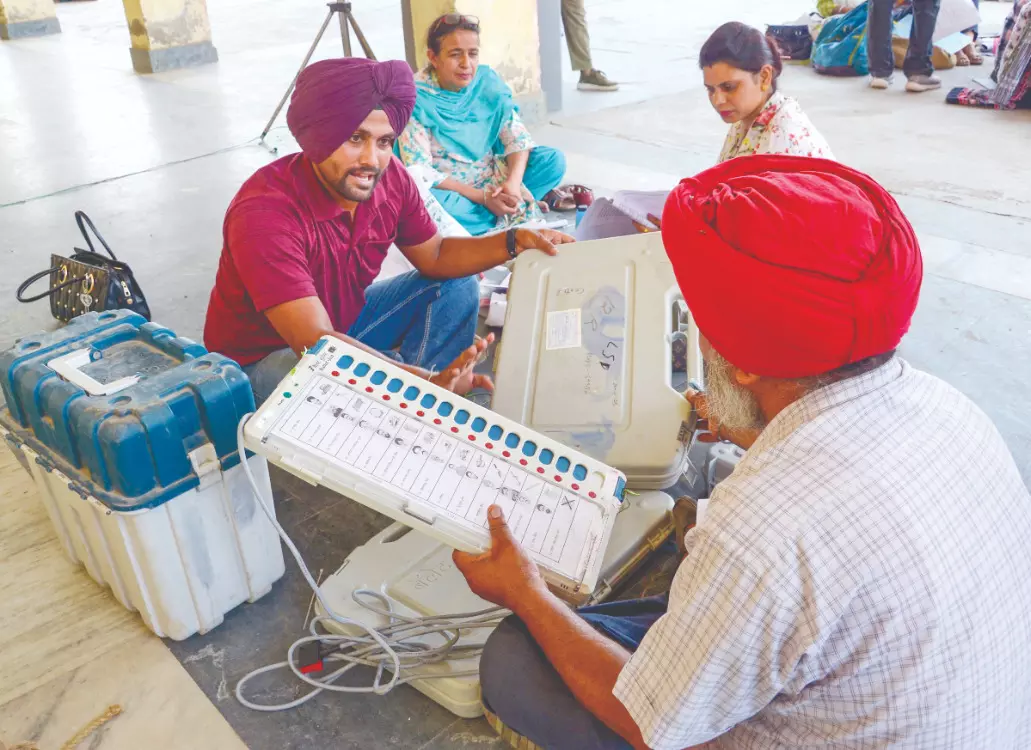
New Delhi, April 11 -- Sources within the Election Commission on Friday dismissed concerns over the security of electronic voting machines (EVMs) used in Indian elections, following international commentary suggesting vulnerabilities in electronic voting systems.
The response came after remarks attributed to United States Director of National Intelligence Tulsi Gabbard regarding potential hacking threats to electronic voting systems. According to EC sources, Gabbard's comments appeared to pertain to systems used in other countries which rely on a mix of technologies, including private networks and internet-based mechanisms.
"In many places, electronic voting involves a combination of systems-servers, networks, and software-some of which are exposed to the internet," an EC official said, adding, "Indian EVMs are standalone, non-networked devices that do not use Wi-Fi, infrared or internet connectivity."
The official likened the functioning of Indian EVMs to "basic calculators," describing them as simple, direct-recording devices that do not store votes electronically in a form that could be remotely altered. The EC also pointed to the legal scrutiny the machines have undergone over the years. "The Supreme Court has examined the design and functioning of EVMs and upheld their integrity," the official added.
In light of public debates, officials highlighted that EVMs are routinely verified during multiple stages of the electoral process. These include "mock polls" conducted in the presence of polling agents before actual voting begins. Moreover, over five crore slips generated by Voter Verifiable Paper
Audit Trail (VVPAT) machines have been cross-checked during counting, according to the EC.
The controversy over EVMs reignited after Tesla CEO Elon Musk last year expressed scepticism about their security, suggesting that they could be hacked either by individuals or artificial intelligence. Though Musk did not specifically refer to Indian EVMs, his remarks drew criticism. At the time, Chief Election Commissioner Rajiv Kumar indirectly addressed the comments.
"A global IT expert said EVMs can be hacked while our elections were going on. They don't even use EVMs in the US; their voting systems are very different," Kumar had said in January. He noted that India completes its vote counting within a day, while some countries take weeks. Without naming Musk, Kumar said, "We just follow the narratives that are suiting."
Meanwhile, the issue has taken a political turn in India. Senior Congress leader Randeep Surjewala raised concerns over Gabbard's reported statements and accused the Centre and the EC of maintaining silence.
In a social media post on Friday, Surjewala questioned why the EC was issuing anonymous responses instead of addressing the matter formally.
"Why are the PM, the NDA government, and the BJP silent?" Surjewala asked.
He urged the Election Commission and the government to seek more information from Gabbard and the US administration regarding any data or research behind the claim.
He also called for judicial intervention. "Shouldn't the Supreme Court of India take suo motu notice and investigate the issue? Free and fair elections are a cornerstone of our democracy," Surjewala said.
Published by HT Digital Content Services with permission from Millennium Post.
